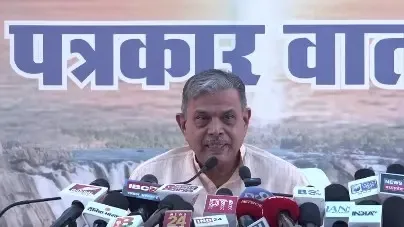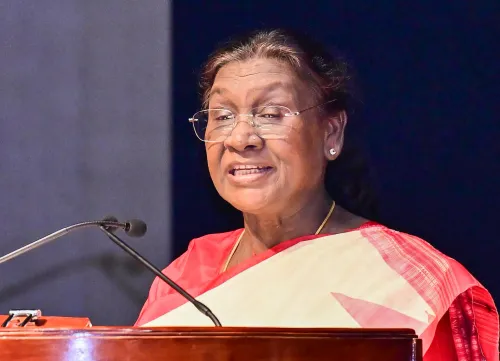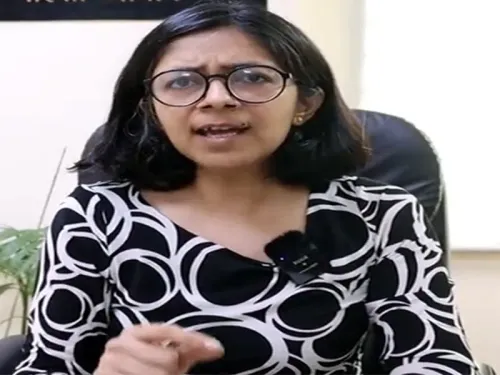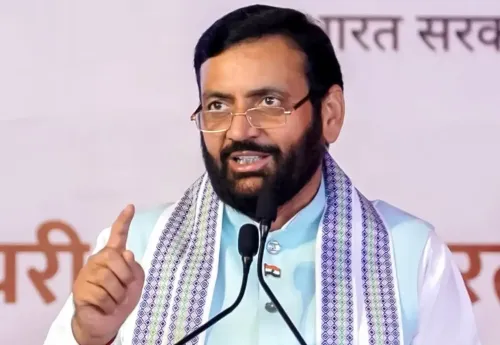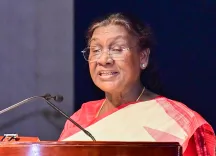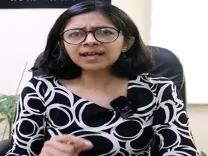Is the Centre Formulating a New Strategy to Boost Farm Goods and Processed Food Exports?
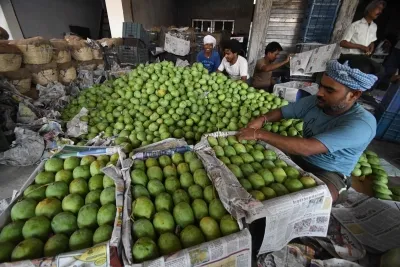
Synopsis
Key Takeaways
- Government commitment to enhance agri-exports.
- Need for collaboration between academia and industry.
- Focus on sustainable practices in agricultural production.
- Importance of infrastructure development for export growth.
- Identification of key export sectors for processed foods.
New Delhi, May 4 (NationPress) The government is determined to minimize logistical obstacles and improve market access for Indian agricultural and processed food products, stated Commerce Secretary Sunil Barthwal during a high-level Chintan Shivir, hosted by the Agricultural & Processed Food Products Authority (APEDA) this Sunday.
In his speech, Barthwal emphasized that "Academia and research institutions should be included in multisectoral discussions to ensure that research and development are prioritized for innovation and sustainability in agri exports".
He underscored that both agricultural production and productivity are critical at this juncture and reiterated the ministry’s dedication to further explore the ideas and strategies that emerged during the sessions.
The consultative meeting convened senior officials from the Union government, Central Ministries, state government representatives, policy experts, and industry leaders from the agricultural trade and processed food sectors to discuss strategies to boost exports.
In his introductory comments, Ministry of Food Processing Industries (MoFPI) Secretary Subrata Gupta stressed the significance of infrastructure development and value addition to ensure sustainable export growth. He noted the necessity of aligning infrastructure and sanitary standards with international norms, as well as creating tariff plans and fostering greater collaboration between the Union government, state governments, various departments, and industry stakeholders. He pinpointed potential products and sectors for processed foods exports such as alcoholic beverages, nutraceuticals, and value-added products.
This Chintan Shivir also saw participation from Special Secretary of the Department of Commerce Rajesh Agrawal, Additional Secretary of the Department of Animal Husbandry & Dairying Varsha Joshi, along with other senior officials from both Union and state governments, policymakers, and industry leaders.
Agrawal highlighted the necessity for a more synergetic approach among various stakeholders to introduce new agricultural, processed food, and value-added products to untapped markets.
A total of 14 states, including Andhra Pradesh, Bihar, Chhattisgarh, Gujarat, Haryana, Punjab, Maharashtra, Madhya Pradesh, Rajasthan, Telangana, Tamil Nadu, Uttarakhand, Uttar Pradesh, and West Bengal, participated in this high-level meeting.
Industry leaders from the agricultural and processed food sectors, represented by companies such as LT Foods, KRBL, Amul, Organic India, ITC, Meatzza, Suguna Foods, Kaybee, TPCI, Allanasons, Fair Exports, and HMA Exports, were part of the dialogue.
The Shivir was segmented into five parallel technical breakout sessions that focused on specific agri-trade commodities and the processed food sector, which covered basmati and non-basmati rice, animal products, horticulture and processed foods, along with organic products.

